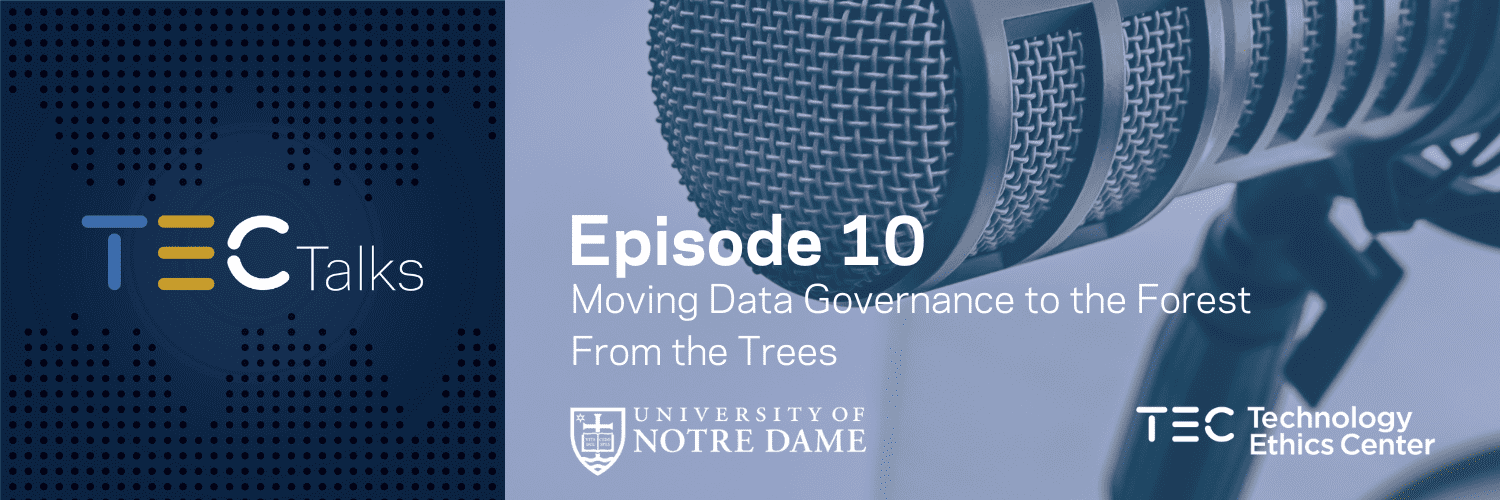Moving Data Governance to the Forest From the Trees

Host Kirsten Martin is joined by Salomé Viljoen, an assistant professor of law at the University of Michigan Law School and an affiliate of the Berkman Klein Center for Internet & Society at Harvard University. She studies the information economy, particularly data about people and the automated systems it trains, and is interested in how information law structures inequality and how alternative legal arrangements might address that inequality. Salomé came on the show to talk about her paper “A Relational Theory of Data Governance,” which appeared in The Yale Law Journal. The paper proposes a new framework for thinking about how we govern the use of people’s data, so she and Kirsten begin by discussing the current/traditional approach focused on the privacy of individual transactions and the degree to which we consent to share our own information. However, Salomé explains what this approach misses, saying how in the digital economy, data isn’t collected to make decisions about any one person. Instead, it’s used to understand populations of people with similar interests, backgrounds, etc. and then predict things about them, such that opting out of sharing your own data doesn’t change the inferences being made about you. Based on Salomé’s argument, Kirsten compares putting all our attention on the handoff of our data rather than on what happens with it afterwards to the old adage about missing the forest for the trees. Salomé then details what she means by moving toward a relational theory of data governance, one that accounts for population-level impacts of big data, recognizes both its potential benefits and harms, and prioritizes the scrutiny of data flows most likely to affect vulnerable communities in disproportionately negative ways (e.g., facial recognition data).
Additional Resources
Presented by Notre Dame Technology Ethics Center
- Paper Discussed in the Episode: “A Relational Theory of Data Governance”
- Salomé’s Bio
- Episode Transcript
At the end of each episode, Kirsten asks for a recommendation about another scholar in tech ethics (or several) whose work our guest is particularly excited about. Salomé highlighted four:
- Beatriz Botero Arcila (Sciences Po)
- Ignacio Cofone (McGill University)
- Elettra Bietti (New York University and Cornell Tech)
- Amanda Parsons (University of Colorado Boulder)
